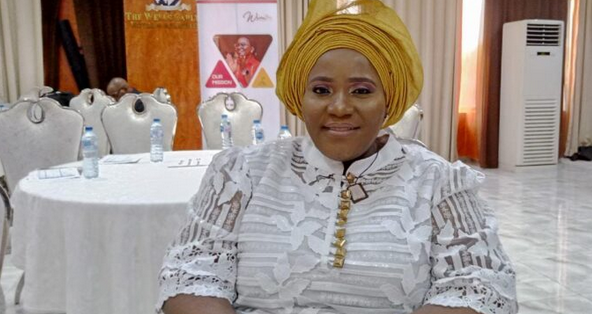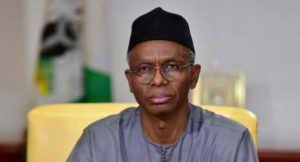
Roseline Ada Chenge, the governorship candidate of the Action Democratic Party (ADP) in Benue, says the federal government’s attitude to 35 percent affirmative action for women has been discouraging.
In March, a bill seeking affirmative action to ensure that women hold 35 percent of government positions was rejected by the national assembly during the voting on constitutional amendment bills.
Consequently, some groups challenged the “marginalisation” of women by the federal government in court.
An Abuja federal high court, in April, ordered the federal government to comply with the 35 percent affirmative action.
Speaking on the issue in an interview with Women Radio, Chenge said despite the political awareness, women are being pushed back.
“My personal assessment is quite discouraging because the more sensitisation that is being pushed out, the more the women are willing to participate, the more they are being pushed back. It is quite discouraging,” she said.
“When I ran for the governorship election in 2007 on the platform of the Peoples Democratic Party, women were very few that would say I want to be a governor. But when I ran in 2015 for the same seat, I saw that the sensitisation across the country on women’s participation has actually yielded a lot of results, with women coming out from their own quiet zone and saying I want to be this.
“The sensitisation has made women come out and know their rights and that they have to participate in nation-building.
“So, the participation of women is encouraging but the pushback from the political parties, executive, legislative arms is quite discouraging. Nevertheless, I believe we must win when we are faced with challenges.”
On the chances of the 35 percent affirmative action, she said women need to take the bull by the horn and take a stand.
“First of all, when the national assembly turned it down, it was heartbreaking. But when the appeal court judgement came, it was welcomed,” she said.
“We saw the judiciary holding the women high and strong but suddenly when they were to forward the names of the last nominees of the ministers that were to come into the cabinet of the present government, the ruling in our favour was completely disregarded and all six ministerial nominees were still male.
“We are encouraged by the judiciary. That is why someone like me, having run on the platform of so-called big political parties twice, I had to go to the ADP who is offering us the opportunity to contest in the general election.
“A lot of women have gone ahead to pick the tickets of different political parties but very few were successful in the so-called major parties.
“So, the way forward in 2023, I believe women can make it. It is for female voters to be sensitised enough to vote for the women they see on their party’s ballot papers so that we can turn the tide from there.”
Chenge said to ensure political representation, all women should vote for female candidates,
“That is my stand. If the women stand strong with us, I think we will win big,” she said.
On steps to achieve 35 percent affirmative action in the future, Chenge said: “If we continue to appeal, it will do us a lot of good. Once the judgement is passed before the 2023 elections, both the legislative and executive arms of government will have no choice but to abide by the court ruling.
“Then women groups, especially the NGOs, are to step up mobilisation of female voters, as well as appealing to our traditional rulers. We have to appeal to the men to let them see that it is not something strange but just participation.
“NGOs should invite more men to sensitisation talks so they can see it is not a kind of rebellious group.
“For elective positions, what political parties can do now is that when the central government comes into power, the parties should ensure that women are well represented in their appointments.”
Chenge also asked for enough financial backing and adequate security for female candidates during elections.








